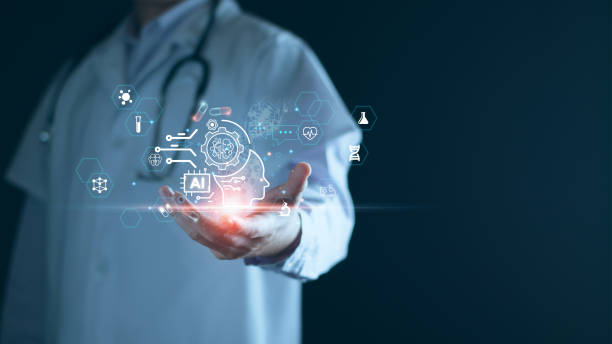
The healthcare industry is undergoing a remarkable transformation with the integration of machine learning (ML). This cutting-edge technology is reshaping how medical professionals diagnose diseases, treat patients, and manage healthcare systems. As the world grows more data-driven, machine learning is set to revolutionize healthcare like never before.
What is Machine Learning in Healthcare?
Machine learning is a subset of artificial intelligence (AI) that enables machines to learn from data and make predictions or decisions without explicit programming. In healthcare, ML models are trained using vast datasets to identify patterns, predict outcomes, and automate complex tasks. These capabilities are increasingly leveraged to enhance patient care, optimize operations, and drive innovation.
Applications of Machine Learning in Healthcare
1. Disease Diagnosis and Prediction
Machine learning is revolutionizing the way diseases are diagnosed. For instance:
- Early detection of diseases: Algorithms like neural networks can identify conditions like cancer or heart disease in their early stages by analyzing medical images, lab results, and patient history.
- Risk prediction: Machine learning can predict the likelihood of developing chronic illnesses such as diabetes or hypertension by examining genetic data and lifestyle factors.
2. Personalized Medicine
Personalized or precision medicine uses ML to create tailored treatment plans for individuals. By analyzing genetic, environmental, and lifestyle data, healthcare providers can offer:
- Targeted therapies: Ensuring treatments are effective and reduce side effects.
- Optimized drug prescriptions: ML helps predict how patients will respond to specific medications, minimizing trial-and-error approaches.
3. Medical Imaging and Diagnostics
ML is advancing the accuracy of medical imaging by:
- Detecting abnormalities in X-rays, MRIs, and CT scans.
- Assisting radiologists in identifying early signs of diseases like tumors or fractures.
- Enhancing image quality for better diagnostic results.
4. Administrative Automation
Healthcare facilities are streamlining operations with ML tools, including:
- Predictive analytics: Anticipating patient admissions and optimizing resource allocation.
- Automating billing and coding: Reducing errors and administrative costs.
- Streamlining appointment scheduling: Minimizing wait times and improving patient satisfaction.
Benefits of Machine Learning in Healthcare
1. Improved Accuracy
ML models can process vast amounts of data with precision, reducing human errors and improving diagnostic accuracy.
2. Faster Decision-Making
Real-time data analysis empowers healthcare providers to make swift, evidence-based decisions.
3. Cost-Effective Solutions
By automating tasks and optimizing workflows, ML reduces operational costs, making healthcare more affordable and accessible.
4. Enhanced Patient Care
With personalized treatment and early detection, ML significantly improves patient outcomes and overall satisfaction.
Challenges Facing Machine Learning in Healthcare
Despite its benefits, integrating ML into healthcare comes with challenges:
1. Data Privacy and Security
Protecting sensitive patient data is critical. Machine learning models require large datasets, raising concerns about data breaches and compliance with regulations like GDPR and HIPAA.
2. Bias in Algorithms
Biased datasets can lead to skewed predictions, potentially affecting patient outcomes. Ensuring diversity in training data is essential.
3. Integration with Legacy Systems
Many healthcare facilities still use outdated systems, making it difficult to integrate ML tools seamlessly.
4. Regulatory Hurdles
Healthcare is a highly regulated industry, and ML solutions must meet stringent approval standards before deployment.
The Future of Machine Learning in Healthcare
The future of machine learning in healthcare is incredibly promising. Some key trends to watch include:
1. Wearable Technology and Remote Monitoring
Wearable devices powered by ML will monitor patient health in real-time, providing actionable insights and enabling early intervention.
2. Drug Discovery
Machine learning will significantly accelerate the drug discovery process, reducing time and costs while identifying potential treatments for complex diseases.
3. Telemedicine Enhancement
ML algorithms will enhance telemedicine platforms by providing accurate virtual diagnoses and personalized treatment recommendations.
4. Robotic-Assisted Surgeries
Advanced ML-powered robots will assist surgeons in performing complex procedures with unparalleled precision.
5. Predictive Analytics for Epidemic Management
Machine learning will play a crucial role in predicting and managing pandemics by analyzing patterns in real-time global health data.
Conclusion
Machine learning is transforming healthcare by enhancing patient care, improving operational efficiency, and driving innovation. While challenges like data security and algorithm bias remain, the potential benefits far outweigh the hurdles. The future holds exciting possibilities for healthcare systems worldwide as machine learning continues to evolve.
If you found this article insightful, don’t miss our next piece on “How AI Is Revolutionizing E-Commerce” Stay tuned to TechAfri for more engaging and informative content about technology’s impact on the world.

